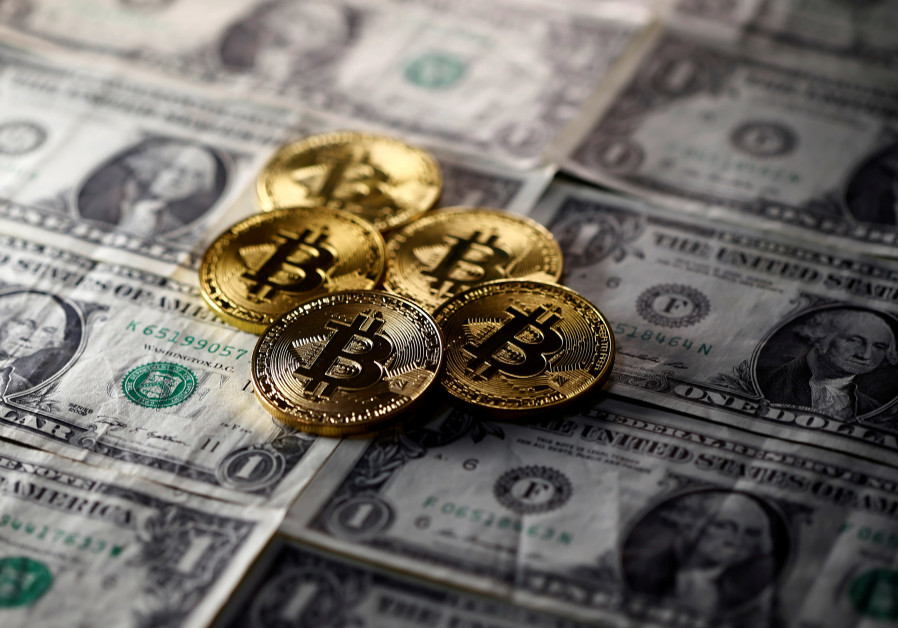Saudi Arabia and UAE to launch cross-border cryptocurrency

Bitcoin (virtual currency) coins placed on Dollar banknotes. (photo credit: REUTERS/ DADO RUVIC)
The Saudi Arabian Monetary Authority (SAMA) and the United Arab Emirates’ (UAE) Central Bank will jointly issue a digital currency for use in cross-border transactions, according to the Gulf News outlet.
“This is probably the first time ever that we witness the cooperation of monetary authorities from different countries on this topic. We hope this achievement will foster similar collaboration in our region,” UAE Central Bank Governor Mubarak Rashid al-Mansouri was quoted as saying.
The Saudi and UAE banks will reportedly rely on blockchain technology to develop the new cryptocurrency, though it will ultimately be limited to inter-bank transactions and not extend to consumer usage. No launch date was provided and some cryptocurrency experts are skeptical the initiative will get off the ground.
Nassar Achkar, CEO of the Dubai-based Hyperchain, a blockchain technology service, declined to comment on the Gulf News report specifically but believes the governments of both countries are becoming more open to digital currencies.
“Dubai is paving the way for checks and balances and they are regulating [this industry],” Achkar told The Media Line. “Banks are relying on the technology behind the cryptocurrency to use it because it’s faster, more efficient and more transparent.”
In the past, the UAE Central Bank declined to endorse digital currencies like bitcoin, arguing it could be used to finance terrorism and other illicit activities. Likewise, Saudi Arabia previously warned that cryptocurrency trading should be avoided because it remains unregulated.
Dr. Alex Coman, a researcher at the Interdisciplinary Center Herzliya’s Adelson School of Entrepreneurship, is similarly skeptical about the plan.
“This looks like a lazy public relations initiative,” he conveyed to The Media Line. “Why not have the entire Arab League join in on this currency? That way you would have a massive body of countries doing business with one another.”
He further explained the reasons behind many governments’ reluctance to fully embrace blockchain technology.
“In general, they oppose cryptocurrency since it is an excellent platform for hiding money. Switzerland and the Channel Islands, among others, are no longer available as tax havens so as a result cryptocurrency is a first-rate solution.”
Businesses, Dr. Coman elaborated, will increasingly turn to these new digital currencies to circumvent the exorbitant fees and bureaucratic processes involved in international banking transactions.
“I see great value in having a platform for international business. We’re on the brink of a revolution because right now if you want to transfer money across the border you pay very high commission. Transactions are going to be much smoother and much cheaper,” he concluded.
For more stories go to themedialine.org
Join Jerusalem Post Premium Plus now for just $5 and upgrade your experience with an ads-free website and exclusive content. Click here>>






Comments are closed.